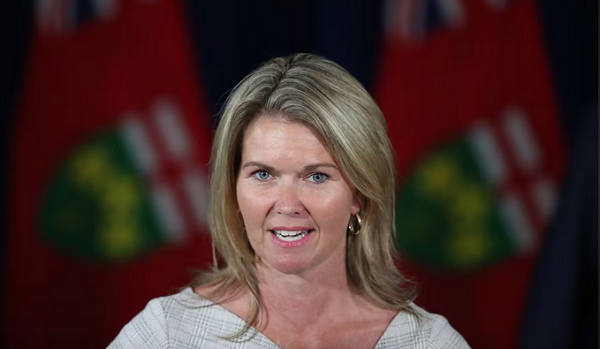Ontario to add $1.3B for three more years of post-secondary funding and freeze tuition
Ontario’s colleges and universities minister says the province will put an additional $1.3 billion over three years toward “stabilizing” post-secondary institutions but will keep tuition fees frozen for at least three more years.
A government-commissioned report released in November said that low levels of provincial funding to colleges and universities combined with a tuition cut and freeze in 2019 are posing a “significant threat” to the financial sustainability of the sector.
Minister Jill Dunlop says today that the government will put $903 million over three years into a new Postsecondary Education Sustainability Fund, with some of that money set aside for institutions with the highest financial need. The rest of the funding will go to capital funding, some STEM program costs and research and innovation projects, among other initiatives.
The expert report had recommended a one-time, 10 per cent increase in per-student funding to colleges and universities followed by inflationary increases in subsequent years, as well as a five per cent increase in tuition along with an “equally generous” increase to student aid.
But Dunlop says today that a tuition freeze in place since 2019 will continue until at least 2026-27, the year of the next provincial election.
Dunlop introduced legislation today that would require colleges and universities to give students information about ancillary fees and other costs such as textbooks, and the bill would require institutions to have mental health and wellness supports policies in place.
Provincial funding for publicly assisted colleges for full-time domestic students is at a lower level than every other province, while the Council of Ontario Universities has said at least 10 universities are facing operating deficits.
A report last year by Higher Education Strategy Associates said Ontario’s post-secondary funding is “abysmal” and raising spending to the average of the other nine provinces would require $7.1 billion per year in additional funding — much higher than the current level of operating funding at around $5 billion.
Post-secondary institutions have recently been saying their situation has grown even more dire following a federal announcement earlier this year that the number of visas for international undergraduate students will be slashed, with Ontario seeing its allotment cut in half.
The low levels of government funding have caused post-secondary institutions to increasingly turn to international student tuition fees, which are much higher than the rates for Canadian students.
Average university fees in 2020-21 were $7,938 for domestic undergraduate students and $40,525 for international undergraduate students, the auditor general said in a 2022 report.
The Smart Prosperity Institute, a University of Ottawa-based think tank, reported last year that Ontario universities nearly doubled international student enrolment between 2014 and 2015, and 2021 and 2022, and colleges more than tripled international enrolment.
Ontario’s government-commissioned report on post-secondary finances said international student revenue is now fundamental to the sector’s viability, greatly raising institutions’ risk exposure.
This article was first reported by The Canadian Press












